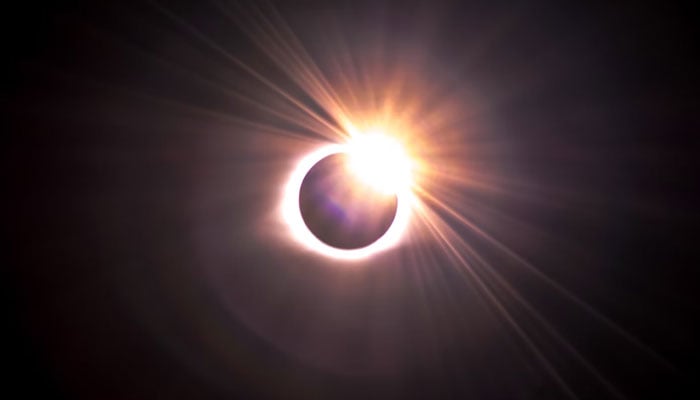Will Pakistan witness this year's second and last solar eclipse?
Solar eclipse to take place on intervening night of October 2 and 3, says Pakistan Meteorological Department
September 30, 2024

KARACHI: Soon after ringing in 2024, humans looked to the skies to witness the Total Solar Eclipse and now its time for the Earth to witness another one.
According to the Pakistan Meteorological Department (PMD), the upcoming solar eclipse will take place on the night between October 2 and 3, marking this year's last celestial event of this kind.
"The solar eclipse will begin at 8:43pm Pakistan time and will peak at 11:45pm," the PMD said. "It will end at 2:47am."
But will this year's second and last solar eclipse take place in Pakistan?
The Met Office has said that this solar eclipse will not be observed in Pakistan. Instead, it will be seen in South and North America and Antarctica.
This celestial occurrence follows a few other occurrences that were observed in the skies recently, including the appearance of the rare Comet A3 and a temporary "mini moon" for Earth.
People in Pakistan witnessed the rare Comet (Tsuchinshan ATLAS) A3 was with the naked eye in the sky on Sunday morning, according to the Space and Upper Atmosphere Research Commission (SUPARCO).
This comet is currently making the turn around the Sun and has become fairly bright to be visible to the naked eye. Many people across the world have already reported sighting it with the naked eye, including Pakistan.
Before that, Earth got a second moon, dubbed as "mini moon", after an asteroid — called 2024 PT5 — entered the planet's orbit on September 29 but it will remain in orbit for a limited time.
The asteroid will continue to orbit the Earth for about two months until November 25.
However, it does not exactly look like the moon that sets the night alight and is not visible with the naked eye as it only measures 10 metres in length, compared to the size of the Earth's moon.









